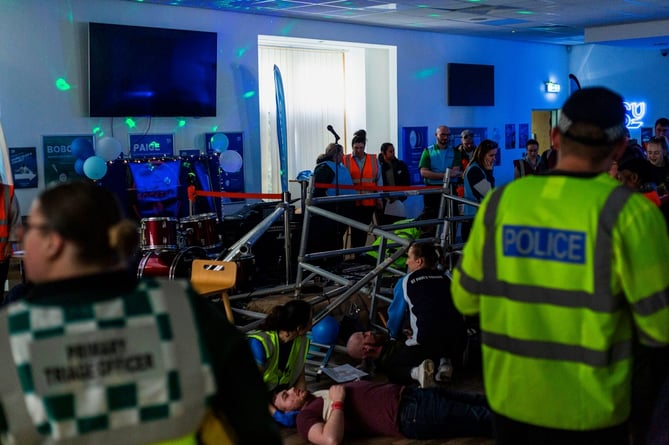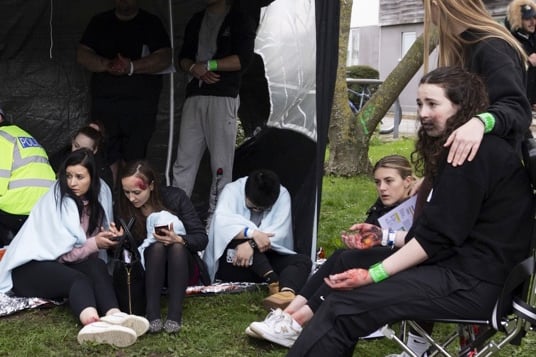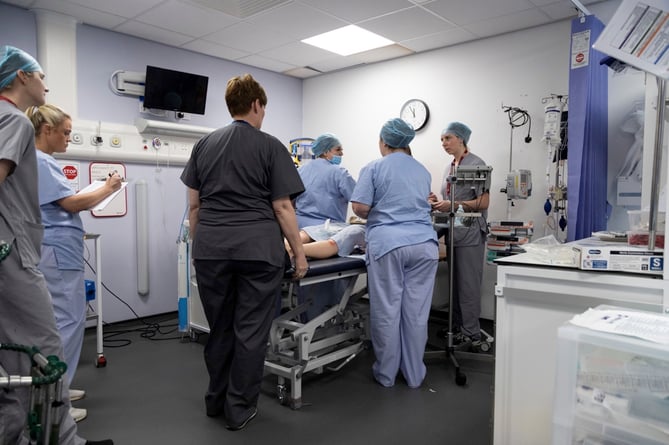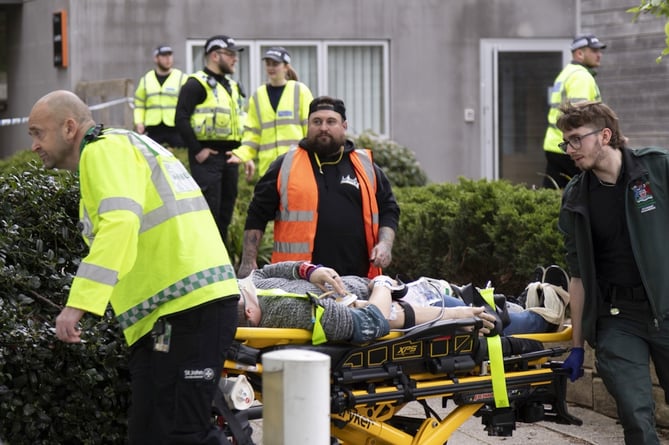EMERGENCY services worked with hundreds of students at the University of Gloucestershire in a unique opportunity that simulated a real-life major emergency.
On Monday, April 22 and Tuesday, April 23, a student-designed “Operation Rockfall” saw students perform a number of critical roles within a stressful environment.
The simulation imagined the collapse of a stage at a music gig within the University’s Campus that resulted in a large number of casualties.
The students worked alongside South Western Ambulance Service, St. John Ambulance, the critical care team from Great Western Air Ambulance Charity, local NHS Hospital teams and Gloucestershire Police.
The role of the casualties included University staff, students, graduates, and actors with additional needs from Inclusion Gloucestershire, while the University’s Oxstalls Teaching Centre was temporarily turned into the ‘Oxstalls University Hospital’.
Students from a range of programmes related to emergency service got the chance to hone their skills, as did learners from Journalism and Media Communications.
Their role in the simulation was ‘crisis communications’ where they gathered information, produced simulated content, considered business crisis communications management, and learned about reporting on breaking news.
Simon Kersey, Practice Skills and Simulation Lead within the University’s School of Health and Social Care, said: “Operation Rockfall is unique in terms of UK university-based simulation because not only is it supported by our NHS and emergency service practice partners, it involves colleagues and students from the School of Health and Social Care and across the wider university to make it a truly multi-professional collaboration.
“It’s a wonderful opportunity for the students to practise their skills in an interprofessional system, notably modern healthcare and modern emergency response, and learn and work together with simulated casualties in a stressful but safe environment.
“The exercise is principally focused on inter-professional communication, and for students to remain professional, calm and effective in the role despite whatever stress they might come up against.
“The idea is to give them stress inoculation, to help them cope with stress, so when they go into the stresses of the real world, the modern emergency environment, they’re better able to deal with the challenges and to care for their patients effectively.”







